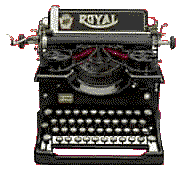
David
Irving comments
GOOD point, and you are
well informed indeed, but there is a difference
in law. I don't know what advice Lipstadt
received. I do know what advice I received, and
as I told my Counsel after the
PQ17 trial was over,
in February 1970, "you don't hire the very
finest professionals and then ignore their
advice."
I made plain before
that trial began that I was willing to testify
in open court, but my eminent counsel, Colin
Duncan, QC, ruled that we would call no
evidence, since there was no need -- the
statements in my book were supported 100 percent
by the Admiralty's documents which were before
the Court. Cassell's insurers had reached the
same conclusion on the documents, otherwise they
would not have allowed the case to go to
trial.
At the forefront of Mr
Duncan's mind no doubt was also the fact that I
was at that time just 32, while Capt Jack
Broome had the DSO, and was a retired
pensioner in his seventies: a point of which the
judge made rather much in his summing
up.
Calling no evidence,
while risky, has the strategic benefit of
reversing the order of final statements to the
jury, leaving us the right to the last
word.
If you read the
transcript
of the final day's
hearing in the
Lipstadt case in March 2000 you will see that
although Richard Rampton, QC had lost
that right by calling a succession of
highly-paid and well-remunerated
witnesses -- other than Lipstadt herself -- he
still managed, with the connivance of Mr
Justice Gray, to interrupt my closing
statement on several occasions and thus in
effect secured the last word for himself. But
that is another matter. Gentlemen play the game
by the rules, and Rampton chose not
to.
There was an important
legal reason for Colin Duncan not to call me.
Put quite simply, there was nothing that I could
have told the jury. I was not in the convoy
operation -- being four years old in 1942. I was
not at the Admiralty. The judge, Mr Justice
Lawton, would not have allowed me to testify
on anything other than what is known in law as
"the state of my mind" when writing the book,
which was not at issue in the original
claim.
Unfortunately at a very
late stage in the proceedings -- after we
had made our election to call no evidence -- the
plaintiff Captain Broome amended his claim to
include a claim for punitive damages, at
which point the state of my mind did become of
material interest to the court.
Having made our
election, we could not change it, such were the
rules; and I had to sit in the front row of the
courtroom for nineteen days listening to the
plaintiff's counsel, the extremely capable Mr
David Hirst QC, pour slime over me,
setting out the spurious case that I had
deliberately set out to libel Capt Broome,
having made the "cynical calculation" that the
damages and costs I might have to pay would be
far less than any additional profit that would
accrue from inserting the libels in the book.
That is the essential element of a claim for
punitive damages in libel.
A ridiculous
hypothesis, as we could have shown that the
advance paid by Messrs Cassell & Co for the
book in 1967 was just £1,000, while the
damages were likely to be far in excess of that;
the damages actually awarded were £48,000
-- the second largest in history at that time --
plus legal costs of around a quarter of a
million.

